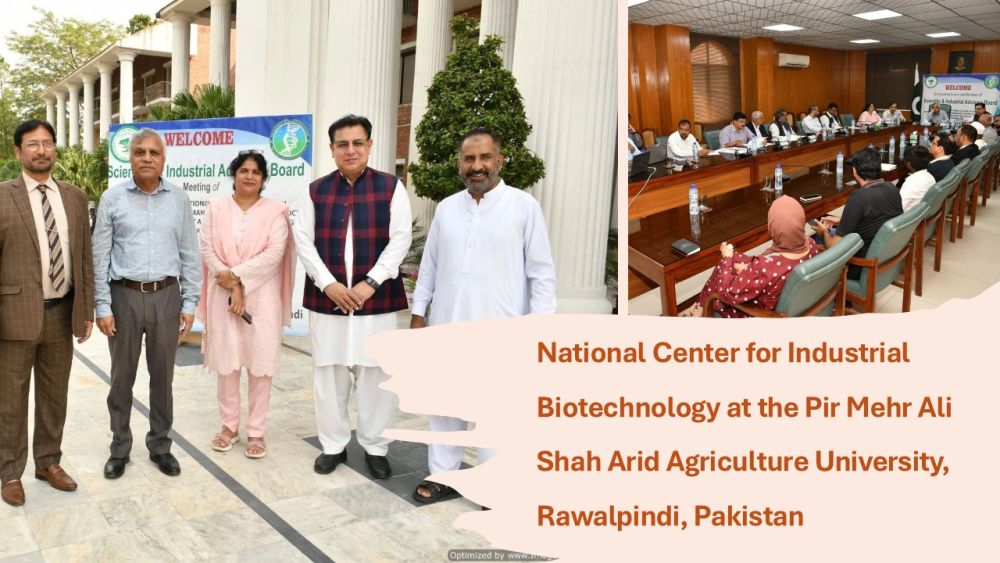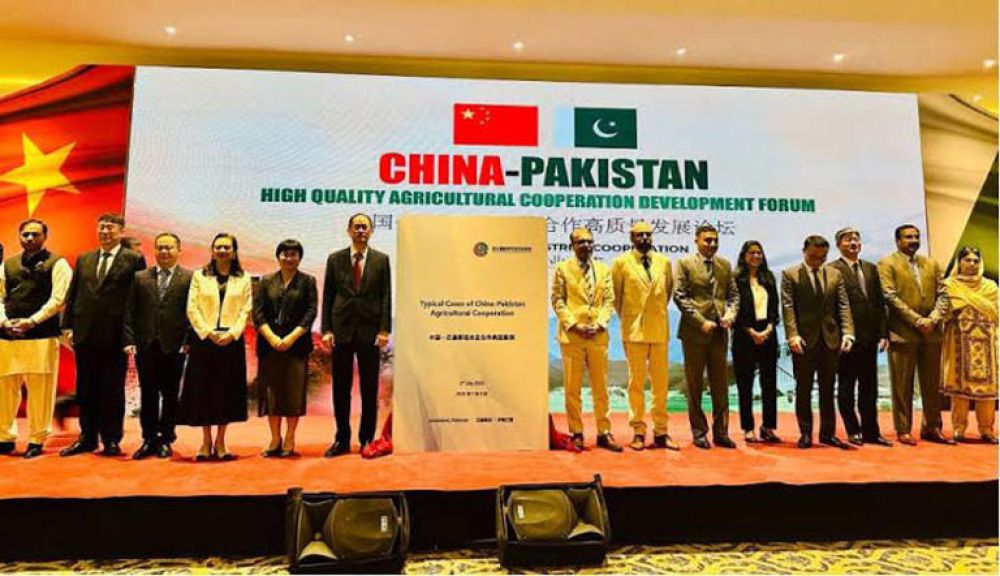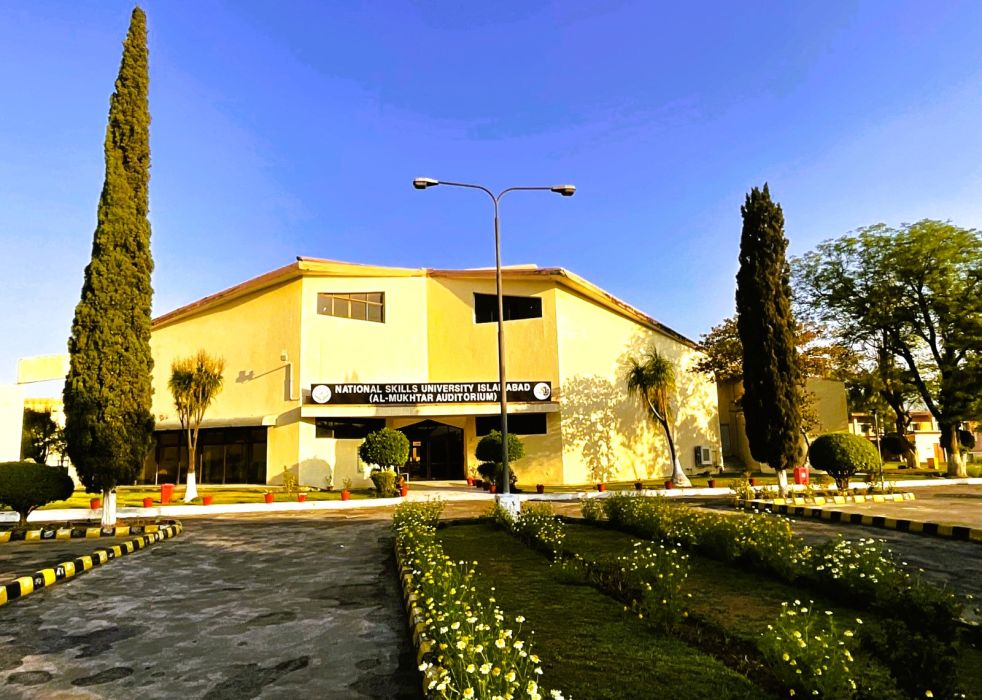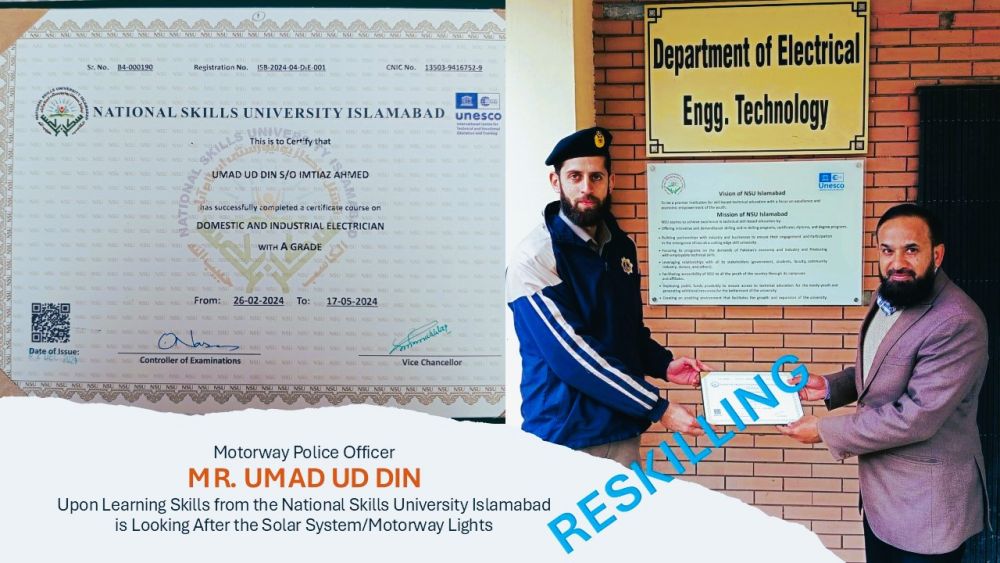205/25 Driving Pakistan’s Bioeconomy: How Visionaries Are Shaping Industrial Biotechnology at PMAS Arid Agriculture University Rawalpindi, Pakistan
Posted 4 months ago
Executive Summary
The National Center of Industrial Biotechnology (NCIB) at PMAS-Arid Agriculture University Rawalpindi is fast emerging as a national hub for innovation in synthetic biology, metabolic engineering, and bioproduct commercialization. This achievement reflects the pioneering leadership of Prof. Dr. Muhammad Mukhtar, whose contributions to the Department of Biotechnology laid the groundwork for advancing applied research, and the vision of Prof. Dr. Khalid Mahmood Khan, whose foresight is being realized through NCIB’s establishment. With strategic partnerships, specialized training initiatives, and strong academia-industry linkages, NCIB is positioning Pakistan to harness biotechnology for sustainable agriculture, economic growth, and entry into the global bioeconomy.
Biotechnology is no longer a distant frontier in Pakistan's evolving scientific landscape; it is becoming a national growth engine. At the heart of this transformation stands the National Center of Industrial Biotechnology (NCIB) at PMAS-Arid Agriculture University Rawalpindi, a flagship initiative funded under the Public Sector Development Programme (PSDP). What makes NCIB’s story remarkable is the visionary leadership and pioneering contributions of individuals who dared to reimagine Pakistan’s role in the global bioeconomy.
One such figure is Prof. Dr. Muhammad Mukhtar, a distinguished academic leader whose service to PMAS Arid Agriculture University and the Department of Biotechnology laid a foundation for advancing applied sciences in the country. With decades of expertise in molecular virology, biotechnology, and higher education leadership, Dr. Mukhtar played a catalytic role in nurturing talent, fostering innovation, and strengthening the academic ecosystem that has evolved into centers of excellence like NCIB. His work advanced biotechnology research and inspired a generation of scientists and policymakers to see industrial biotechnology as a pathway to sustainability and economic resilience.
Equally central to NCIB’s rise is the vision of Prof. Dr. Khalid Mahmood Khan, then Vice Chancellor of the PMAS Arid Agriculture University Rawalpindi, whose commitment to industrial biotechnology is now being translated into reality through this landmark center. His foresight in aligning synthetic biology, metabolic engineering, and bioproduct development with Pakistan’s agricultural strengths has created a blueprint for bridging academia and industry.
The momentum was evident at the second meeting of NCIB’s Scientific and Industrial Advisory Board (SIAB), a body that plays a crucial role in guiding and accelerating the center's biotechnology-driven growth. At this meeting, academia and industry collaborated to formalize strategic partnerships through MoUs with companies like Shimadzu & Wali Group, Biodyne, Orbit Seeds Pvt. Ltd., Infinity Grow Pvt. Ltd., and Professor Vegetable & Fruit Farm. These collaborations aim to scale research into real-world applications, from field trials to commercialization of cutting-edge bioproducts.
The PMAS-AAUR's current Vice Chancellor, Prof. Dr. Qamar uz Zaman, captured the essence of this effort by emphasizing that NCIB reflects the joint commitment of the University’s leadership, project team, and stakeholders to advancing applied research. Technical Director Prof. Dr. Abida Raza further outlined the Center’s roadmap, focusing on sustainability, specialized training under the NCIB-Scientific Skill Development Program Initiative (SSDPI), and offering advanced technical services to academia, industry, and farmers.
The NCIB closely collaborates with the University Institute of Biochemistry and Biotechnology, headed by Prof. Dr. Muhammad Javaid Asad, who was present in this meeting along with his team members.
The SIAB members echoed strong confidence in NCIB’s vision, recognizing it as a model for how Pakistan can leapfrog in industrial biotechnology. Chairing the meeting, Mr. Usman Shaukat, President of the Rawalpindi Chamber of Commerce and Industry (RCCI) and CEO of Biolabs Pvt. Ltd., put it succinctly:
“Academia-industry linkage is no longer just a buzzword but a national imperative. NCIB’s progress is a testament to how collaborative efforts can drive innovation, sustainability, and economic growth.”
For Pakistan, establishing NCIB is more than just an academic milestone; it is a statement of intent. By converging the intellectual capital nurtured by leaders like Dr. Mukhtar and the vision of pioneers like Dr. Khalid Mahmood Khan, the country is positioning itself to tap into a multi-billion-dollar global bioeconomy. Of note, Prof. Dr. Muhamamd Mukhtar was mentored by Prof. Dr. Khalid Mahmood Khan for his Master and M.Phil degrees.





